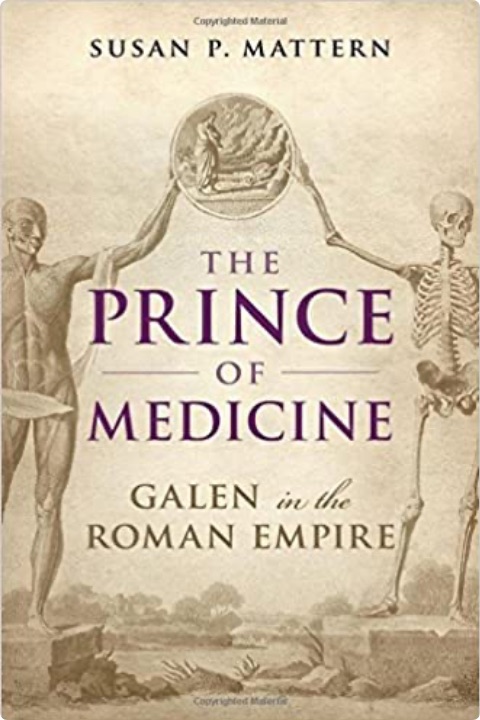In the first draft of the screenplay for the film Gladiator, the character to be played by Russell Crowe (‘father to a murdered son, husband to a murdered wife’, etc) was named not Maximus, but Narcissus. Which might have made for a slightly different movie. One can imagine the emperor Marcus Aurelius (Richard Harris) telling the beefy hero, ‘I’m entrusting the empire to you, Narcissus, because you’re loved by the soldiers, more gifted than my son Commodus, and also because you take better care of your skin than any general I’ve ever known.’
The reason for the original choice of praenomen was that the character was loosely based on a real-life athlete named Narcissus, believed to have killed Commodus in 192 AD. The emphasis here is on ‘loosely’. The historical veracity of the film is practically nil, which doesn’t make much difference unless you happen to be a historian of the period, like Susan P. Mattern. A professor at the University of Georgia, she has written a competent, confident and frequently fascinating biography of Galen, who served as physician to both Marcus Aurelius and Commodus, and also worked for years patching up gladiators in Pergamon, the town in modern- day Turkey from which he hailed. And she does so without once mentioning Russell Crowe. Now that takes temperance.
She manages it partly because she occupies a higher intellectual plane than some of us (the name Galen, in case you’re wondering, is pronounced to rhyme with Van Halen) and partly because she has enough of interest to say without down-shifting into small talk. A medical equivalent of Christ or Socrates, her ‘Prince of Medicine’ had a knack for making his rivals look stupid. Sometimes he staged demonstrations for the purpose, public vivisections that astonished the multitude; sometimes, it just happened. Once, when he was treating an anatomist named Eudemus, Galen’s prognosis was so accurate that he was subsequently accused of the ‘blasphemy’ of consulting omens, a practice forbidden by the ‘holy father’ of medicine, Hippocrates. Galen replied that he doubted the authenticity of the Hippocratic text in question; then added, apropos of his amazing ‘prophecy’ about the course Eudemus’ fever would take, ‘You heard it from Eudemus, not from me.’ A classic Socratic or Christlike evasion, if ever there was one.
Nota bene — we, the readers, heard it from Galen, not Eudemus. One of the most attractive things about Socrates, and for that matter Christ, is that neither of them ever wrote anything. They were too busy doing stuff to sit down and describe it. The same cannot be said for Galen, who wrote so much that his oeuvre comprises (genuinely) one-eighth of all the classical Greek literature that survives. This is one of Mattern’s justifications for suggesting, in an uncharacteristically wild moment of overstatement, that he may be ‘the most influential’ pre-20th century figure ‘in western culture generally’. You’d think Christ, or indeed Socrates, might have the edge there.
Galen wrote books about what a good doctor he was. He also wrote books about those books: for example, On His Own Books (the clue’s in the title) and even On the Order of His Own Books, which doesn’t sound like an especially gripping read. It was the good doctor, perhaps, and not his gladiators, who deserved the nickname Narcissus.
Like most narcissists, the man was something of a bore. ‘I spent all my time in the study of medical practice,’ he once confessed, when reminiscing about his youth, ‘deliberating and reflecting on medicine. Generally, I have gone without sleep at night in order to examine the treasures left to us by the Ancients.’
Christ. Socrates. Galen?
I’m not disputing that he was a titan of his time — his ceaseless tomes would be consulted by medics for centuries to come — nor even that, as a GP, he was the business. (He tells us so himself.) But the author of this fine biography takes it further. She has gone without sleep at night in order to examine the treasures left to us by the Prince of Medicine. And for that we must be grateful, not least because it means that we don’t have to.

